Policy Speech by the Governor of Tokyo, Yuriko Koike, at the Third Regular Session of the Tokyo Metropolitan Assembly, 2018
In opening the third regular session of the Tokyo Metropolitan Assembly in 2018, I wish to relate my basic stance on future metropolitan administration.
In the time following the strong earthquake that shook northern Osaka Prefecture in June, large-scale disasters occurred one after another across Japan, including torrential rains and Typhoon No. 21 (Typhoon Jebi), the strongest typhoon to come ashore in 25 years, which affected mainly western Japan, and the Hokkaido Eastern Iburi Earthquake. I would like to again extend my deepest condolences to all who lost loved ones and my heartfelt sympathies to all who were affected.
The Tokyo Metropolitan Government (TMG) has swiftly responded to these disasters, dispatching TMG employees to the affected areas, sending supplies, and providing other forms of support. And, we will continue to provide as much support possible. As governor, I am responsible for protecting the lives and assets of the citizens of Tokyo. Bearing in mind that a disaster can also strike Tokyo at any time and could cause a situation that goes beyond worst case scenarios, I emphasize anew that we will continue to make more than sufficient preparations. This is the only way I can realize my goal of making Tokyo a “Safe City.”
1. Tokyo’s disaster preparedness and environmental measures
-
We will make all possible preparations to keep Tokyo safe. In line with this resolve, we will advance the creation of a disaster resilient city through efforts such as making buildings seismic resistant, improving areas with close-set wooden houses, promoting the removal of utility poles, and taking regional storm and flood control measures. In addition, we will also work to raise disaster preparedness capabilities through a combination of self-help, mutual help, and public assistance.
Furthermore, considering the increasing severity of recent disasters, we conducted an emergency overhaul of all measures for disasters, including storms, floods, and earthquakes, and recently announced the results of that review. As examples of measures to be enhanced, we will now promote the expansion of the use of timelines that set forth in a chronological format the actions municipalities and residents should take when a disaster strikes to help facilitate appropriate evacuation, as well as study the construction of new regulating reservoirs. Concerning block walls at risk of collapsing like the wall that tragically collapsed on an elementary school student during the Northern Osaka Prefecture Earthquake, we will give first priority to removing block walls at metropolitan owned facilities that line designated school routes. Additionally, at some facilities, we will install fences that use timber harvested in Japan, including Tama timber, on a trial basis. And, we will steadily work to speed up and improve disaster preparedness programs, including measures for sediment disasters and power outages when a disaster occurs, as well as enhanced dissemination of information to foreign nationals, based on the results of the review.
Taking the opportunity presented by the trial installation of wooden fences, we established a framework within the TMG to study and encourage greater overall use of Japanese timber, and receiving the support of the Japan Association of Governors, a large-scale project team was also launched with the participation of 41 prefectures. This November, we will invite about 5,000 people to attend a national forest conservation event that Tokyo is hosting for the first time. We hope to use such opportunities to promote the appeal of and boost demand for Japanese timber, and have this lead to afforestation measures to renew Japan’s forests which are also extremely valuable from a disaster prevention standpoint.
Through collaboration with private companies, we were also able to quickly deliver liquid baby formula to areas affected by recent natural disasters in Okayama, Ehime, and Hokkaido prefectures. Our past efforts to urge the national government to take action regarding liquid baby formula have succeeded. With the establishment of standards and regulations for the formula last month, the product can now be manufactured and sold in Japan. I am certain that this will lead to added peace of mind for those raising small children. In the spirit of “Always be prepared,” we will continue to implement detailed measures, and evolve Tokyo’s disaster management measures in both hard and soft aspects.
-
Measures to combat climate change cannot wait
It has been suggested that global warming played a role in the extreme heat on par with a natural disaster and record-breaking torrential rain and frequent typhoons that Japan experienced this summer. Whether from the standpoint of realizing a “Smart City” or realizing a “Safe City,” measures to combat climate change can no longer be postponed.
As part of such endeavors, we have launched an initiative that aims to offset all CO2 emissions in Tokyo for the four days of the opening and closing ceremonies of the Olympic and Paralympic Games Tokyo 2020. We, as the host city, will also cooperate with the Organising Committee’s efforts aimed at offsetting all CO2 emissions produced by the Games. I look forward to showing the world a Tokyo, that works to become a zero-emissions city with the businesses that support these initiatives through public-private partnership. Concerning zero-emission vehicles that do not emit CO2, we will support the wide spread use of these vehicles through means such as establishing new subsidies to encourage businesses to purchase electric motorcycles.
Measures that protect lives from extreme heat are also essential. Specifically, protecting children, whose body temperature regulation functions are not yet fully developed, and students is a pressing issue as they are more susceptible to heat stroke. Although the TMG has been promoting the installation of air conditioning systems at schools, we will continue working on additional measures to address heat at schools.
Raising awareness of the mottainai concept
To enhance the effects of measures aimed at making Tokyo a zero-emissions city, we must raise awareness among the citizens of Tokyo regarding the concept of mottainai, which means “too precious to waste.” Through the activities of “Team Mottainai” that we launched last month in collaboration with businesses, NGOs, and others, we will encourage each and every Tokyo resident to adopt eco-friendly behaviors, such as reducing food waste and using energy efficiently.
With respect to single-use plastics, which are contributing to ocean pollution, development of measures is accelerating around the world. As an example of such measures, we are currently inviting the public to submit ideas that lead to a reduction in the use of plastic straws. Through such efforts, I hope to raise momentum for efforts to curb plastic straw use. Last month, I asked the Tokyo Metropolitan Council on Waste to consider ways to greatly reduce the use of these single-use plastics for which little need exists. We will study policies the TMG should advance, while also taking into consideration the introduction of ordinances to promote such measures.
2. Making the Tokyo 2020 Games and Rugby World Cup 2019 a success
-
Next, I would like to speak about the Tokyo 2020 Games and Rugby World Cup 2019.
To gain a bird’s-eye view of four major issues -- measures for the most crucial issue of summer heat, work style reform, volunteerism, and promotion of barrier free upgrades -- and speedily and strongly promote measures addressing these issues in order to ensure the success of the Tokyo 2020 Games, we established a TMG-wide study team headed by my vice governors. Concerning measures to combat heat, in addition to continuing to advance the use of solar heat-blocking pavement and creation of more shade using roadside trees, the TMG as a whole will think about further initiatives from both hard and soft approaches, including measures for the “last mile” from the station nearest to the competition venue to the entrance of the venue itself.
And, with regard to work style reform, using the occasion of the Games, we will promote the spread of new work styles that value life-work balance, including telework, and have this also contribute to alleviating traffic congestion during the Games. Just last month we launched a project to promote traffic demand management with the Tokyo 2020 Organising Committee and central government in preparation for controlling traffic volume during the Games. While also working with the business world, we will work to strike a balance between smooth game operations, the daily lives of Tokyo citizens, and economic activities.
-
At the 18th Asian Games held in Indonesia, which recently came to a close, Japan won 75 gold medals -- its second highest gold medal count ever -- showing very promising results as we head toward the Olympic Games. This included Tokyo native Rikako Ikee being named the Olympic Council of Asia's Most Valuable Player. Please allow me to express my great respect for all of the athletes. At the upcoming Asian Para Games to be held next month, I also look forward to Japanese athletes giving their all and further raising enthusiasm for cheering on para sports throughout Japan.
On the 25th of last month, which marked two years to the start of the Paralympic Games, we held a Paralympic Games Countdown Event where many people had the opportunity to actually try para sports. Through such efforts, I hope to realize a Paralympic Games where crowds at events cheer even louder, encouraging each and every athlete to demonstrate their utmost power and skill.
It has been decided that both the torch relay, which will instantly boost unity for the Games throughout Japan, and the Olympic competitions -- 33 sports, the highest number to date -- will start in Fukushima Prefecture. Along with the passion of the Games, we will show the current state of recovery in areas that were affected by the 2011 Great East Japan Earthquake, from Fukushima to all of Japan, and then to the world. I will never forget the reason why we have termed these Olympic and Paralympic Games the “recovery Games,” and I am committed to continuing to do all that needs to be done to make them a success.
Concerning volunteers, who will play leading roles alongside the athletes, we will finally start the recruitment of volunteers on the 26th of this month. To encourage a broad range of people to participate, regardless of age, gender, or whether or not one has an impairment, we will publicize and actively hold information sessions. With an eye to instilling a culture of volunteerism as a legacy of the Games, we will hold volunteer summits for metropolitan high school students and others to raise enthusiasm for proactively participating in social contribution activities, and foster excitement for taking part in the Games among the people of Tokyo and Japan.
With regard to the Tokyo Tokyo FESTIVAL, the cultural program that will bring vibrant color to the Games, in addition to the SaLaD Music Festival, a concert for people of all ages featuring a combination of classical music and dance, which was held the day before yesterday, we will hold a range of events this fall, including the Tokyo Grand Tea Ceremony. In November, as part of Tandem Paris-Tokyo 2018, a cultural program jointly conducted with the City of Paris, we will hold a variety of events in Paris to introduce Japanese culture, including an art event on the theme of furoshiki, the traditional Japanese wrapping cloth. I will also travel to Paris for the occasion. While there, I look forward to strengthening cooperation with the city, which will host the 2024 Games, and widely promoting the appeal of Tokyo as the host city of the 2020 Games with respect to our culture, sightseeing, and leading environmental policies.
-
General public ticket lottery applications kicked off today for Rugby World Cup 2019, which is now just a year away. Through the one year-to-go countdown event we will hold next week, campaigns on social media, and other efforts, we hope to have many citizens of Tokyo and Japan feel connected to the tournament and together build excitement for the event.
Over 38,000 people responded to the call for about 10,000 volunteers for Rugby World Cup 2019 -- a tournament record. With the support of all of the volunteers and while working closely with the other 11 host cities nationwide, including Kamaishi City, Iwate Prefecture, where the Kamaishi Unosumai Memorial Stadium recently opened, we will do all possible to make the tournament a success.
3. Developing Toyosu Market into Japan’s central market
Let me now move on to the Toyosu Market.
Next month, the vitality of Tsukiji Market, which has been cultivated as “Tokyo’s kitchen” through people-to-people connections over the course of its 83 years, will be passed on to Toyosu. We had been promoting measures to ensure that all of the people of Tokyo can really feel that the market is safe and received confirmation from the panel of experts that safety against future risks has been secured. As the market operator, the TMG, declared the market safe and received approval from the Minister of Agriculture, Forestry and Fisheries. Last week, we held the market opening ceremony amid final preparations for the market environment.
We will continue to strictly manage the market to ensure safety and peace of mind, as well as to properly disseminate accurate information, and while generating vitality that attracts people, together with those who operate businesses at the market and the local municipality, we will make Toyosu a market that is widely known and liked as Japan’s central market. Through TMG-wide efforts, we will also steadily advance a series of initiatives to further bring out Tokyo’s potential, including the redevelopment of the former Tsukiji Market site and construction of Ring Road No. 2.
4. The last two years and the next two years
-
Since taking the helm of the Tokyo government, which was under intense scrutiny by the people of Tokyo, two summers ago, unwavering in my commitment to the “grand reform of Tokyo” and “putting the citizens of Tokyo first,” I have been promoting metropolitan administration reform, planting new seeds, watering and cultivating them. I am confident that I have been advancing metropolitan administration for the people of Tokyo from the perspective of the people at all times, thinking about what needs to be done now to raise Tokyo citizens’ hopes for tomorrow, and for Tokyo’s bright future.
As I mentioned before, in the next two years, Tokyo will be a host for the Rugby World Cup and host the Olympic and Paralympic Games back to back, and will enter a crucial period where it must further evolve as a city. We will prepare a stage to unite athletes and spectators, and lead the Games to success as a festival that produces new records and lasting memories. Through the Games, we will show the world the current state of areas that were affected by the 2011 Great East Japan Earthquake, and support even more progress. With an eye to beyond 2020 when Tokyo’s population is expected to decline and age further, we will take the opportunity presented by the Games to make significant strides toward transforming Tokyo into an even more sophisticated mature city where all of its citizens are full of hope and dynamism. In order for Japan’s capital, Tokyo, which has a 150 year history, to continue to shine for 200 and 300 years into the future, I am determined to work on these challenges with strong resolve.
-
The many seeds of policies we have planted over a wide area thus far have now sprouted and are starting to bloom. For example, through measures to eliminate waiting lists for child daycare so that women can shine as they raise their children and hold down a career, we have reduced the number of children on waiting lists from last fiscal year by 3,172 as of April 1, lowering the number to the 5,000 level for the first time in a decade.
With the working-age population expected to decline, the TMG is currently advancing work style reform along with over 2,000 companies to boost the workforce participation of a variety of human resources and enhance productivity. We were very pleased to have around 800 companies participate in our “Jisa Biz” campaign to promote staggered commuting hours, held over one month this summer. That is 2.5 times more companies than last year. The percentage of companies in Tokyo with 30 or more employees that have adopted telework has increased from 6.8 percent last year to 19.2 percent. Diverse work styles that enable anyone to demonstrate their motivation and capabilities are spreading.
Concerning the long standing issue of measures to prevent passive smoking to protect the health of the people of Tokyo, we submitted the “Health First” ordinance at the last regular session of the Assembly, which was approved. We will also boldly implement growth strategies with an eye to Tokyo’s future, including measures to reinstate Tokyo as a global financial city and accelerate the development of autonomous driving technologies.
These are just some of the initiatives we are pursuing to improve Tokyo’s quality as a city that is livable, easy to work in, safe, and comfortable, and to generate sustainable growth powered by the people. We will continue to carefully cultivate each of the policies to blossom one after the other until they become large, beautiful blooms. And, using the Tokyo 2020 Games as the springboard, we will realize the “Safe City,” “Diversity” (Diverse City), and “Smart City” concepts, and make strong progress toward creating the “New Tokyo.” We will work diligently to meet the mandate of the citizens of Tokyo, making each day count toward these efforts.
-
Currently, over half of the world’s population lives in cities. According to the United Nations, in 2050, that percentage is expected to reach nearly 70 percent. As the presence of cities in the global economy continues to rise, this is now the era of competition between cities, where a city’s competitiveness sways the country’s ability to compete. As such, Tokyo and all of Japan’s cities must leverage their own strengths to drive the country’s growth. In such a climate, what the central government should be doing does not include continuing to steal Tokyo’s fiscal resources. To truly revive local governments, including Tokyo, it must work to increase local tax revenues.
Amid the daily chaos of world affairs, including intensifying trade friction between the United States and China, all of Japan will fail if the country continues to only take an inward-looking stance and spur on confrontation between cities. To share this sense of crisis and put a stop to the central government’s movements, I have been actively meeting with people from the central government and leaders from ruling and opposition parties, members of the Diet, and others to request their cooperation. Together with the members of this Assembly, I will continue to expand understanding with regard to Tokyo’s position on the matter. And, while working to create a mutually beneficial relationship with all areas of Japan, Tokyo will use the following three keys to improve its vitality and growth potential to serve as the source of our nation’s prosperity.
Connecting people
Using the synergistic effect created by person-to-person connections to make Tokyo’s vitality and energy even greater is the first key. The vision set forth based on this principle, titled “Let’s Create and Develop Tokyo Together,” serves as the key policy direction for this fiscal year. With eight new strategies centered on “the connections between people” as the pillars of the plan, we will boost Tokyo’s vitality to the highest extent possible in order to drive Japan’s growth.
Gathering knowledge
The second key is “gathering knowledge.” This fiscal year we expanded the fields covered and extended the submission period for the program proposal system that we launched last fiscal year. We also started a new system to gather proposals from university researchers for programs based on their research outcomes and themes. As a new initiative, last month, we also hosted a meeting attended by the presidents and representatives of 19 universities in Tokyo to discuss topics such as Tokyo’s future and boosting international competitiveness. Their broad views and knowledge were very thought provoking. I will apply such wealth of knowledge in resolving Tokyo’s challenges and creating growth.
Carrying out reform
The third key is “carrying out reform." We have pursued the reform of metropolitan administration to change the structure of the TMG and how it works based on the three principles of “Tokyo citizens first,” “information disclosure,” and “wise spending.” This has produced solid results, including further promotion of information disclosure, starting from the revision of the ordinance, and program reviews, which have created 160 billion yen in fiscal resources. TMG employees are taking the initiative to steadily advance and promote “Reform for 2020” to raise productivity, including an objective analysis of their bureau’s main programs, promoting the move to paper-less, cash-less, and “stamp-less” (signatureless) transactions, and other efforts to create a stronger and leaner metropolitan government. We will create a TMG where employees can fully demonstrate their abilities, and under this open metropolitan government, advance important and worthy policies along with the people of Tokyo to build a sustainable Tokyo that continues to generate growth.
5. For a Tokyo where everyone is radiant and “people” power growth
Through a focus on “people,” the citizens of Tokyo will become more radiant and Tokyo will become even more dynamic. This is exactly what I have been advancing these past two years in my “Tokyo citizens first” policy directive for the Tokyo government. We will continue with our efforts to build a society where all can lead vibrant lives in order to forge a Tokyo that keeps on growing through the power of people, even as the population shrinks.
-
In preparation for a 100-year life, we will realize a Tokyo where the elderly can be radiant throughout their lives in their own place in society. The TMU Premium College, which will open next April in the Tokyo Metropolitan University as a 100-year life college for lifelong learning, will begin accepting applications from prospective students at the end of next month. In line with this, a symposium and demonstration classes will be held to heighten interest in learning among senior citizens.
To build an environment where those with ambitions can again work at the frontlines, last month the Advanced Institute of Industrial Technology launched a program for seniors thinking of starting up businesses. We will also roll out measures that can effectively support senior citizens in finding work, such as offering recurrent education so that they can take up the challenge of working at new jobs and providing opportunities for them to gain new skills while working at companies.
Meanwhile, with regard to selective long-term care, which we have been advancing studies on in order to improve measures supporting the elderly, a model program began in Toshima-ku last month. This system, which allows the combined provision of services covered by long-term care insurance and services that are not covered by insurance, is anticipated to bring about more flexible response to diverse needs and more efficient operations by long-term care providers. Along with Toshima-ku, we will verify the effects of this program and expand its implementation from the next fiscal year.
Last year we established a panel of experts to study what form Tokyo should take as a city where the challenges of an ultra-aging society will be acutely displayed. The other day, this panel submitted a policy proposal titled “Tokyo Beyond 2020: The world’s leading long-life society.” While applying the valuable proposals that come from their expertise on the ground, such as future direction of policy development, we will accelerate our initiatives with the aim to realize a Tokyo where the residents can lead enriching 100-year lives.
-
To advance the active role of women, since June we have been holding symposiums inviting speakers who are active in sectors where there are few women. Last week, we had four women active in the transportation industry discuss the appeal of work, balancing work and home, and other relevant topics. By focusing attention on women who are active in various fields, we hope to further broaden possibilities for women in society,
This month, the program to raise women entrepreneurs who aim to develop business overseas or find solutions to social challenges, welcomed its third batch of participants. And, in November we will open a new Challenge Shop in the Tama area, where women and young people who aim to open a store in a shopping street gain first-hand knowledge about how to manage a shop. These and other various measures will be implemented to support women in demonstrating their capabilities in all kinds of fields.
-
Education of our children is investment for the future of Tokyo. Tokyo Global Gateway, which had been receiving much attention, opened the other day. At this facility, children can enjoy a global communication experience, and we hold expectations that this will significantly raise English skills, which will be their passport to the world.
At the Comprehensive Education Council meeting held last month, discussions were conducted with experts and metropolitan high school teachers on the subject of “reading comprehension” required of children in the age of artificial intelligence. We will advance research and development on effective teaching methods and other relevant matters, and apply the outcomes to education in schools.
In order to raise the attractiveness of metropolitan high schools, the Second Phase of Implementation of the New Metropolitan High School Reform Promotion Plan (name TBD), which sets forth the three-year vision from next fiscal year, will include ambitious initiatives to address new challenges such as enhancing the ability to create new value and cultivating human resources to support Tokyo’s industries. The outline will be released in November, and while also hearing the views of the Tokyo citizens, the Board of Education will deepen studies for its formulation in February next year.
Child abuse, which robs children of their radiance, must be prevented by all means. In addition to urgently strengthening the Child Guidance Office system within this year, we will expand the range of information shared with the Metropolitan Police Department to include all cases considered to be at high risk, and will quickly implement all possible measures such as accepting consultations over LINE on a trial basis. Regarding a Tokyo ordinance to prevent abuse, the other day we announced our basic concept for this, which is arranged from the four perspectives of “prevention,” “early discovery and response,” “support for children and guardians,” and “human resource development.” Upon hearing the views of the Tokyo residents and the municipalities, we aim to submit a bill to the first session of this assembly next year. We will continue to advance measures speedily to ensure the protection of children from tragic abuse.
-
In order to achieve a society where everyone shines, we submitted a bill for the Tokyo Metropolitan Ordinance Seeking the Realization of the Principle of Respect for Human Rights Outlined in the Olympic Charter. Upon clarifying the position that unfair discrimination against various human rights is impermissible, we will promote initiatives to remove unfair discrimination due to sexual orientation or gender identity, and unfair discriminatory speech against people originating from outside Japan. I wish to leverage this ordinance to raise an even larger groundswell of respect for human rights and, along with the citizens of Tokyo, create a dynamic Tokyo radiant with diversity.
-
For Tokyo to grow through the power of “people,” an important issue we need to address is promoting the development of small and medium-sized enterprises that continue to support Tokyo’s economy through the diligent efforts of “people.” A panel of experts is conducting studies from various perspectives on a proposal for an ordinance that will clarify the basic concepts for this. We plan to submit a bill at the Fourth Regular Session of the Assembly.
Measures such as strengthening the management of SMEs, securing human resources, and boosting innovation that will expand Tokyo’s growth, will be incorporated in a new vision that is also currently under study. An interim report will be released in November.
-
By enhancing the attractions of Tokyo, the stage where people can shine, we will draw out the strength of people even more and link this to the sure growth of Tokyo.
Moving the Metropolitan Expressway underground
We took the first big step toward realizing the relocation of the Nihombashi section of the Metropolitan Expressway underground with the July release of the design proposal put together with the national government, local municipality and the Metropolitan Expressway. The history and culture of Nihombashi, which was the starting point for the five roads leading out of old Edo, can still be sensed in this district as it continues to develop as the frontline of global business. In order to further heighten the value of this area, which we could say symbolizes the city of Tokyo where tradition and innovation intersect, we will work to make the plans more concrete while conducting a review of costs.
Drawing out the potential of the bay area to the maximum
The bay area is demonstrating its presence as a center that enhances Tokyo’s appeal. We will formulate a vision for this area as a model for next generation urban development. In order to show a future vision to the world, and link this to Tokyo and Japan’s growth strategy, we have set up a TMG-wide study and will also launch a public-private collaboration team comprising the younger generations. We will advance studies while receiving proposals based on free-flowing ideas that go beyond the framework of government.
Last month, we announced a program for the BRT, a bus rapid transit system that will connect the city center and the bay area, for partial operations starting from fiscal year 2020 and full operations by fiscal 2022. While responding to the future increase of transportation demand, we will draw out the potential of the bay area to the maximum and link this to the substantial growth of Tokyo beyond 2020.
Creating the Tokyo island brand
We will implement specific measures to brand the proud attractions of the islands based on proposals from the Tokyo Treasure Island Promotion Committee. From this month, we launched efforts for island businesses to take the initiative in building their local brand through friendly competition with other islands based on advice from experts. Regarding island products that enhance the island brand such as Toshima’s camellia oil and Aogashima’s shochu liquor, we will advance detailed support such as concept formulation and development of markets.
I have visited all of Tokyo’s 11 inhabited islands since I took up office. Last month I visited Hachijojima for the second time. The Tokyo Island Motor Show was being held there to disseminate the appeal of electric vehicles. Beginning with Hachijojima, which also uses geothermal energy to generate power, for the islands to use renewables that make the most of each island’s distinguishing features and to popularize the use of EVs, would be the sure path to achieving “zero-emission islands.” We hope to have the substantial environmental possibilities of the islands generate their new appeal.
We will further polish the treasures of Tokyo. In addition to advancing the development of the Tama area by employing its characteristics such as rich nature and concentration of industry and academia, we will, for example, enhance the attractiveness of the metropolitan parks that provide the people of Tokyo with a place for relaxation.
6. Key bills
Next, I would like to explain the key bills we have submitted to the Assembly.
The ordinance to repeal the industrial water service ordinance will develop related regulations following the discontinuation of industrial water services. Since we announced our policy to discontinue services at the previous session, we had been studying a support plan while listening carefully to the views of the users. Based on this proposed plan, we wish to advance in detail our support to the users.
For the title of Tokyo Honorable Citizen, we have selected three candidates this year: Mr. Hoseki Okuyama, Ms. Tsuneko Sasamoto, and Mr. Akihiro Miwa.
Mr. Hoseki Okuyama is a master of tankin, a metal craft technique that involves hammering heated metal. While boldly pursuing the depiction of natural scenes, he has been committed to handing down and developing this traditional skill that dates back to the days of Edo.
Ms. Tsuneko Sasamoto is Japan’s first female photojournalist. Known for her photographs of women who have survived because of their spirit of independence, she is still active today although she is over 100 years old.
Mr. Akihiro Miwa showed post-war Japan a way of life beyond the boundaries of gender. His elaborate stage performances and art of narration have won over a broad range of generations.
With the approval of the Tokyo Metropolitan Assembly, we wish to award these three worthy candidates the title of Honorable Citizen next month. The cooperation of the Assembly would be most appreciated.
7. Closing remarks
”Don’t fantasize, act. Don’t doubt, act. Don’t narrate, act.” These are the words of the seventh mayor of Tokyo, Shinpei Goto, who advocated that “activity is the greatest truth.”
The Grand Reform of Tokyo aims to build a sustainable New Tokyo as the population shrinks and grays. To realize this goal, it is crucial that we share our aspirations for Tokyo’s bright future with you, the members of this Assembly and the citizens of Tokyo, and combine our strengths. We wish to act together with you and promote Tokyo’s grand reform, to take Tokyo to even greater heights as a mature city. The understanding and cooperation of the members of this Assembly and the citizens of Tokyo shall be greatly appreciated.
Including the matters to which I have already referred, a total of 37 proposals have been presented to this regular session of the Tokyo Metropolitan Assembly, including 13 proposed ordinances and 18 proposed contracts to be deliberated among the Assembly members.
This concludes my policy speech to the Assembly. Thank you.

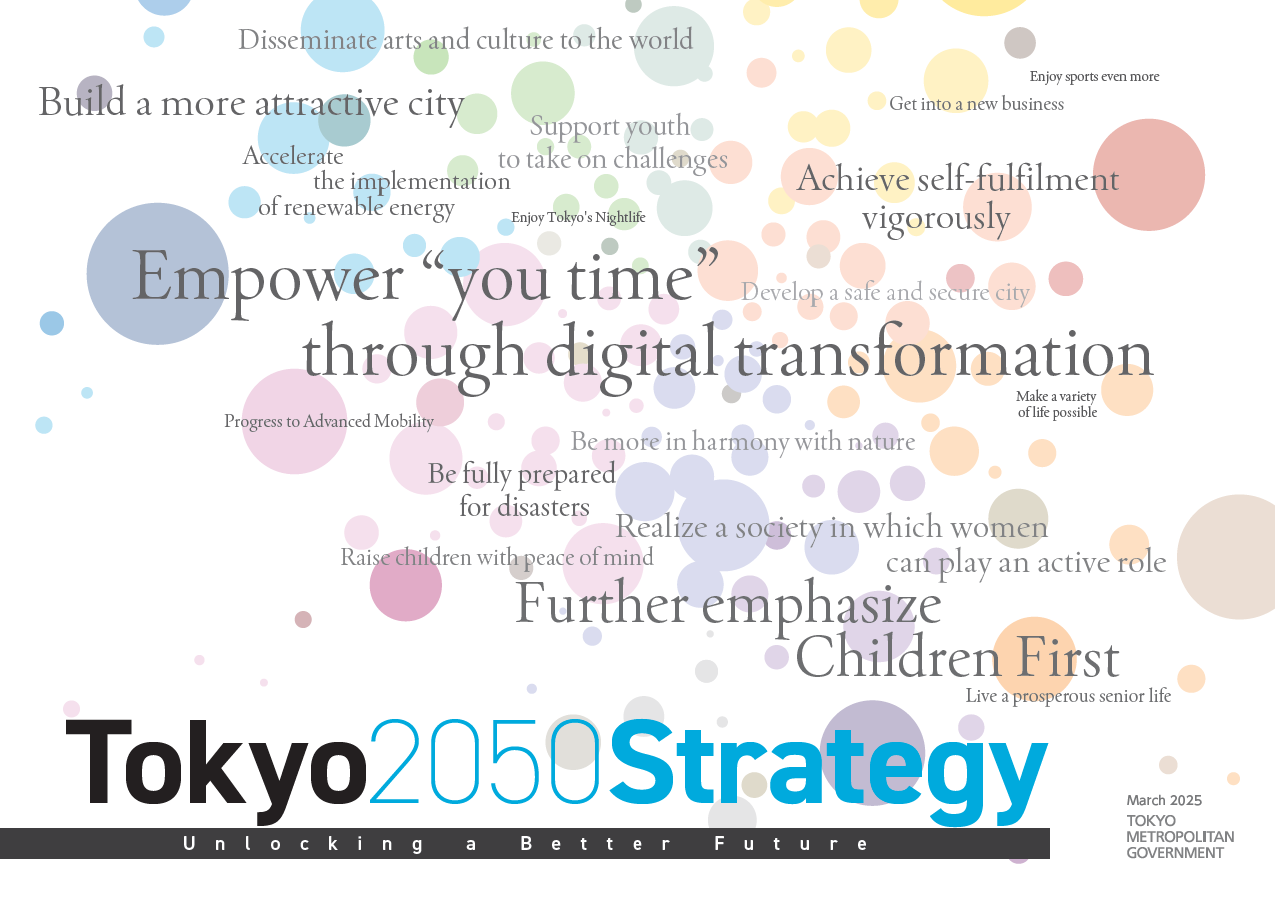
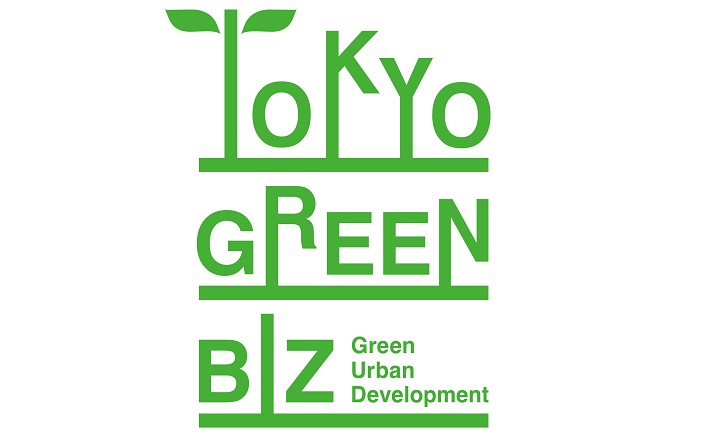
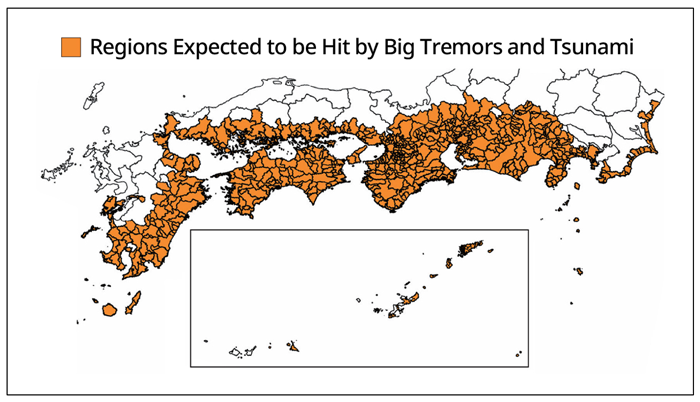

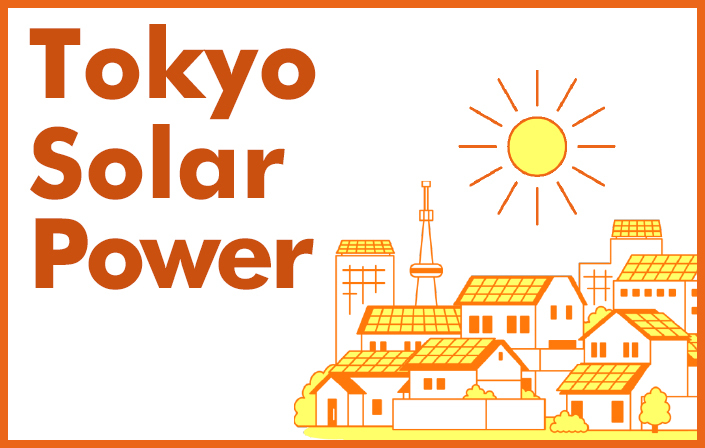
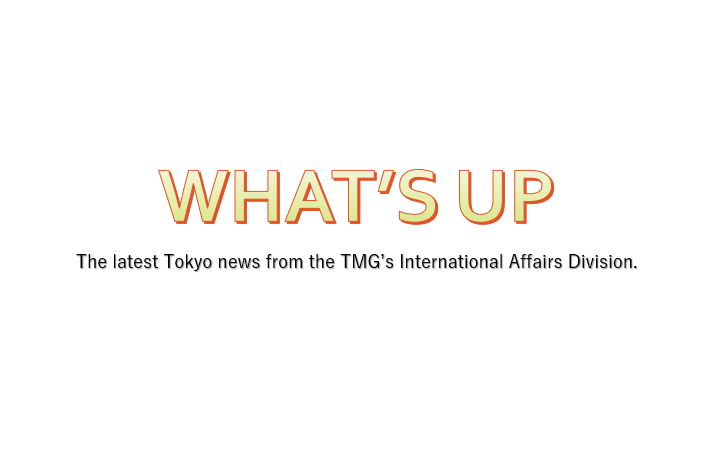
Recommended for You
Govenor Koike Calls for Innovation at FII PRIORITY Asia Summit 2025
December 1, 2025
Tokyo Governor’s Mideast Tour Highlights Multi-City Resilience Efforts and Japanese Capital’s Global Presence
November 27, 2025
Japan-U.S. Leadership Summit Held at UNU in Tokyo
October 10, 2025
TIME TO ACT FORUM 2025: Strategically Tackling Climate Change
October 7, 2025
Tokyo 2025 Deaflympics (Part 1): A Leap Towards an ‘Inclusive Society’ with Sign Language
November 12, 2025
Championing Inclusive Growth: OECD and Tokyo’s Shared Vision
November 13, 2025
Call to Action for Hydrogen Use at “HENCA Tokyo 2025”
October 21, 2025
Governor Koike Inspects Hachijojima Island Hit by Typhoons
October 15, 2025
Tokyo Disaster Response Headquarters Meeting (2nd Session)
October 9, 2025
Selection of My Fave Umbrellas
September 25, 2025